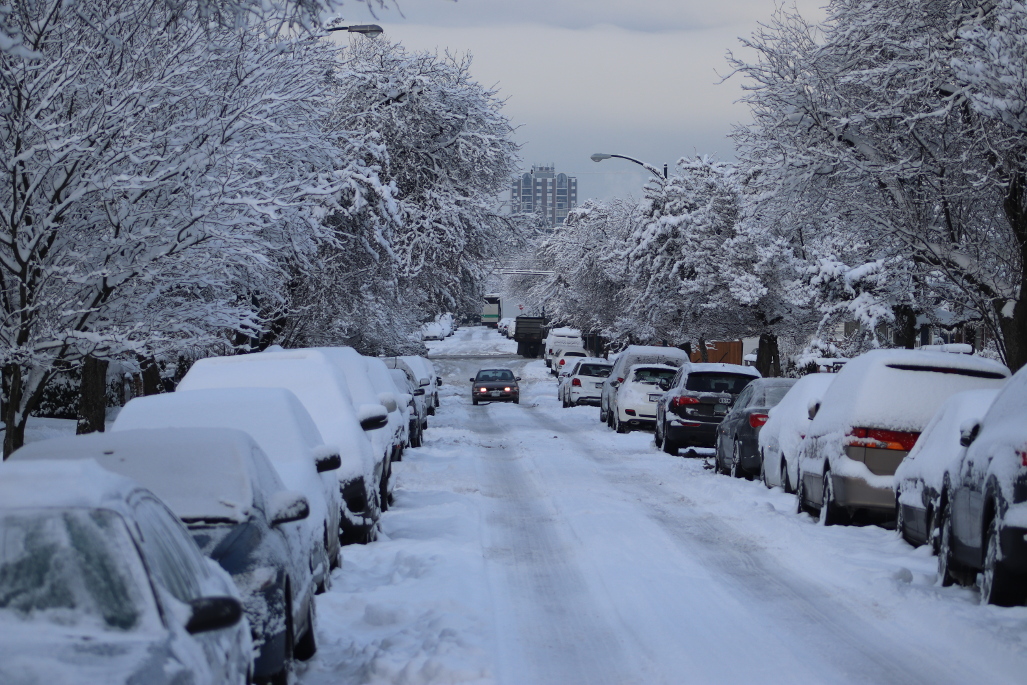The following is my submission to Vancouver City Council on the Overnight Residential Parking Permit Program.
My neighbour is a care aide at a long term care home who makes a smidgen over minimum wage and lives in a basement. She needs a car because she often works the night shift and she has no other means of getting to and from work. The only place she can park her car is on the street.
While the people who came up with this parking plan worked in the comfort and safety of their homes during the pandemic, my neighbour worked at the care home risking her life in the service of others while struggling to make ends meet.
And now, the City of Vancouver wants to punish her for being a poor renter.
I don’t expect comfortably housed well-to-do homeowners behind this plan to understand the daily struggles of Vancouver’s precariously underhoused working poor. Perhaps $45 per year is pocket change for the people who come up with these policies. But for Anna, that $45 could mean that she would have no money left to buy her daughter a present at Christmas.
This is a user fee. And studies over the last few decades have shown that user fees worsen inequality as they hits the most underprivileged the hardest.
Let’s be honest. This parking plan was spearheaded until recently by someone who flew into work on a sea plane from his idyllic island home. I don’t, for a moment, believe that the City of Vancouver is trying to tackle climate change with this plan. I believe this plan is all about driving the working poor out of the city and into the valley.
Punishing Vancouver’s already stressed renters for being poor is cruel policy. Targeting renters harms essential workers without doing anything meaningful to tackle climate change.
The number one source of global greenhouse emissions in the world is embodied carbon dioxide in construction, which accounts for around 40 percent of greenhouse gas emissions1)Changes in building and construction have great potential to slow global warming. UN Environment. https://www.unep.org/news-and-stories/story/changes-building-and-construction-have-great-potential-slow-global-warming/. Published March 12, 2020. Accessed March 30, 2021.2)Stewart E, Pugh G, Jordan M. Buildings Are an Ideal but Overlooked Climate Solution. World Resources Institute. https://www.wri.org/blog/2019/11/buildings-are-ideal-overlooked-climate-solution/. Published November 11, 2019. Accessed March 30, 2021..
Yet, one in five of all new homes built in the last 15 years in Vancouver have been left empty. You can significantly reduce emissions by making developers build for need instead of building for greed. But no, that will hurt developers profits, and we the City will never do anything to hurt developer profits.
All that said, this parking plan still can be turned into a useful policy. There is a clear need to go after the wealthy homeowners who park three of their five cars on the road because they only have a two car garage. Again, $45 per year is not going to deter them. Make them pay more. Make it $450 per year per car for the first car, $1000 for the second, and so on.
What the council needs to do is to amend this motion to exempt renters from the parking plan while charging wealthy homeowners who park their excess vehicles on the street an escalating fee. To make it a deterrent, set the base much higher than the current $45 per year.
And at the same time, I want the City of Vancouver to take meaningful steps to tackle climate change, especially with regards to all the condos being built to solely function as safety deposit boxes for dirty money. Not only would we be cutting embodied carbon dioxide, we’d also be helping people to live close to their homes.
References
| 1. | ↑ | Changes in building and construction have great potential to slow global warming. UN Environment. https://www.unep.org/news-and-stories/story/changes-building-and-construction-have-great-potential-slow-global-warming/. Published March 12, 2020. Accessed March 30, 2021. |
| 2. | ↑ | Stewart E, Pugh G, Jordan M. Buildings Are an Ideal but Overlooked Climate Solution. World Resources Institute. https://www.wri.org/blog/2019/11/buildings-are-ideal-overlooked-climate-solution/. Published November 11, 2019. Accessed March 30, 2021. |
